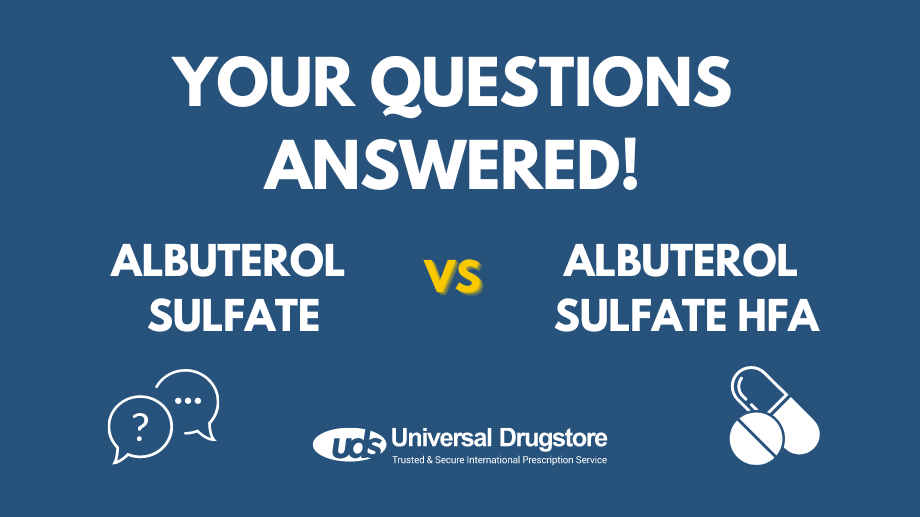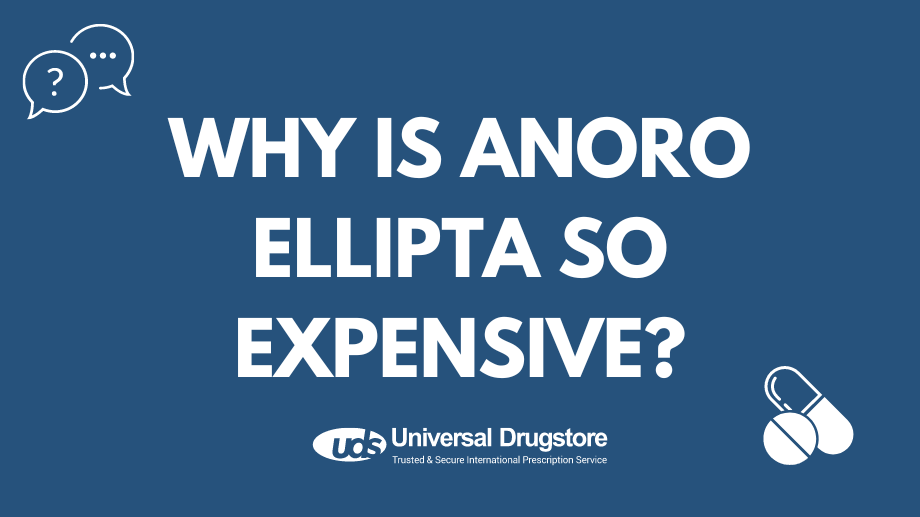If you have been diagnosed with asthma or chronic obstructive pulmonary disease (COPD), your doctor may have prescribed you some form of the drug albuterol sulfate. Albuterol sulfate is the official generic name in the United States but it is known as salbutamol in other countries. Albuterol sulfate is a fast-acting bronchodilator that is FDA-approved to relieve COPD and asthma symptoms such as shortness of breath, wheezing, and chest tightness. It comes in a variety of dosage forms, including an HFA metered-dose inhaler (MDI), nebulizer solution, inhalation powder, tablet, and syrup. Most people who use albuterol sulfate use an HFA asthma inhaler. So are there any differences between albuterol sulfate and albuterol HFA, including their uses, and side effects?
Albuterol sulfate vs. albuterol HFA: What's the difference?
Albuterol sulfate
Albuterol sulfate is a prescription drug that is the generic name for all albuterol products. It is a member of the drug class known as beta-agonists, which work by relaxing the muscles in the airways and increasing the flow of air to the lungs. Albuterol sulfate can be administered via an inhaler or nebulizer and is available in several dosage forms, including aerosol canisters, powder-filled capsules, and solutions for use with a nebulizer. It is also available as an oral tablet and syrup.
Albuterol HFA
Albuterol HFA is a type of inhaler that contains hydrofluoroalkane (HFA) as its propellant. It works by relaxing the muscles in the airways and increasing the flow of air to the lungs, much like traditional albuterol inhalers. Traditional albuterol inhalers are used to contain chlorofluorocarbons (CFCs) as their propellant. However, these were phased out due to their harmful impact on the ozone layer, and healthcare providers started prescribing albuterol HFA inhalers. They come in brand names including Proventil HFA and Ventolin HFA and are also available in several generic versions. On October 1, 2022, Teva stopped manufacturing the brand name ProAir HFA (albuterol sulfate) Inhalation Aerosol. It is also available as an authorized generic.
Albuterol HFA inhalers deliver 90 mcg (base) per actuation which is equivalent to 108 mcg of albuterol sulfate. They contain 200 actuations in each inhaler. A dose counter is built into each device to let you know how many inhalations are left in your inhaler.
What is albuterol sulfate and albuterol HFA used for?
Albuterol sulfate and albuterol HFA
These medications are primarily used to treat the symptoms of bronchospasm, which can occur in people with asthma or COPD. Albuterol HFA is used as a rescue inhaler to provide relief during an asthma attack or other breathing problems. These medications are also used to prevent wheezing and breathing problems when you exercise. They are often used along with a preventative medication such as an inhaled corticosteroid.
How do you administer albuterol sulfate and albuterol HFA?
Albuterol sulfate
Albuterol sulfate can be given as an oral tablet, syrup, or via an inhaler or nebulizer. Inhalers are small, handheld devices that deliver a fine mist of medication to the lungs. They are typically used for quick relief of bronchospasm. Nebulizers are larger devices that convert liquid medication into a fine mist that can be inhaled through a mouthpiece or mask. Nebulizers are often used for people who have difficulty using inhalers, such as young children or older adults.
Albuterol HFA
Albuterol HFA is administered in the same way as traditional albuterol inhalers. It can be used with or without a spacer, which is a device that attaches to the inhaler and helps the medication be delivered deep into your lungs. Albuterol HFA inhalers should be primed before the first time you use it or after prolonged periods of non-use to be sure that the medication is delivered in the correct dose. Follow the instructions for use that come with your specific albuterol HFA inhaler.
What are the side effects of albuterol sulfate and albuterol HFA?
Like all medications, albuterol sulfate and albuterol HFA can cause side effects. According to the U.S. Food and Drug Administration (FDA), the most common adverse effects of albuterol seen in clinical trials include:
-
Fast or increased heart rate
-
Irregular heartbeats
-
Shakiness
-
Runny nose
-
Sore throat
-
Headache
-
Dizziness
Other side effects of these medications include:
-
Anxiety and nervousness
-
Increased blood pressure
-
Chest pain
-
Trouble sleeping
-
Dry mouth
-
Cough
-
Change in taste
Rarely, they may cause serious side effects. If you experience any serious side effects, seek medical attention immediately, including:
-
Severe, life-threatening allergic reactions (hives, swelling of the face, lips, tongue, or throat, and trouble breathing)
-
Paradoxical bronchospasm (trouble breathing or wheezing after using the medication)
-
Hypokalemia (low potassium levels)
These are not all of the possible side effects of these medications. You should always seek medical advice from your healthcare professional for any questions or concerns about your medical condition or treatment. Read all medication guides or drug information sheets that come with this medication. You can report side effects to FDA at 1-800-FDA-1088 or www.fda.gov/medwatch.
What are the precautions with albuterol sulfate and albuterol HFA?
Before using albuterol sulfate or albuterol HFA, tell your doctor if you have a history of heart disease, high blood pressure, diabetes, or thyroid problems. Also, tell your doctor if you are pregnant or breastfeeding, as albuterol may pass into breast milk and harm a nursing baby.
Related medications
Sources









